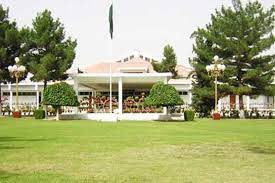1. Mahrang Baloch March, Balochistan to Islamabad
There is not a single issue in Balochistan, at the end of 2023 the largest and main story of the year is the Mahrang Baloch March. It so outspokenly reveals one’s political stripes as the plight of Balochistan. This truth was brutally etched this past Wednesday night, when tides of peaceful protesters, traveling from Turbat to Islamabad, were denied entry at the capital’s gates.

2. Afghan Refugees, “Repatriation and Complexities”
The complex issue of undocumented Afghan refugees in Pakistan requires a careful and balanced approach, considering both national security concerns and the rights of refugees. The recent government initiatives to facilitate repatriation while respecting refugee rights highlight the gravity of the situation.

Long-term solutions involve collaborating with Afghanistan and the international community to address root causes like poverty and conflict. In the short term, the government should work with the UNHCR for voluntary repatriation. Balancing national interests and humanitarian considerations is crucial, requiring a comprehensive plan that respects human rights and addresses the challenges faced by both the host country and refugees.
3. The threat of Crimean-Congo Hemorrhagic Fever in Balochistan
The province of Balochistan is facing an alarming surge in suspected cases of Crimean-Congo Hemorrhagic Fever (CCHF), with approximately 80 individuals displaying symptoms. The tragic loss of a dedicated doctor treating CCHF patients highlights the risks faced by healthcare workers.
 Underreporting challenges and strain on healthcare facilities necessitate immediate support and comprehensive preventive measures, including enhanced surveillance, public awareness campaigns, and international collaboration. Balochistan’s collective efforts strengthened healthcare infrastructure, and vigilance is crucial in mitigating the impact of CCHF and ensuring the safety of its residents and healthcare heroes.
Underreporting challenges and strain on healthcare facilities necessitate immediate support and comprehensive preventive measures, including enhanced surveillance, public awareness campaigns, and international collaboration. Balochistan’s collective efforts strengthened healthcare infrastructure, and vigilance is crucial in mitigating the impact of CCHF and ensuring the safety of its residents and healthcare heroes.
4. Wadh Khuzdar Tension
In the intricate political landscape of Balochistan, Sardar Akhtar Jan Mengal holds immense influence, particularly in addressing the Wadh Khuzdar tension. As a key figure associated with the Balochistan National Party (BNP), known for its commitment to democratic values, Mengal’s exclusion could have profound consequences for the Baloch people and raise questions about the region’s commitment to democratic principles.

Amidst historical tensions, the call for a measured approach to the Wadh problem is emphasized, recognizing the potential repercussions of resorting to force. Mengal’s popularity and commitment to democracy underscore the need for political prudence in navigating Balochistan’s complex political dynamics and ensuring the region’s harmony and stability.
5. Balochistan’s Anti-Sexual Harassment Cells
The establishment of anti-sexual harassment cells in Balochistan, in compliance with the Anti-Sexual Harassment Act of 2021, represents a commendable stride towards addressing and preventing sexual harassment and violence.

Operating at the local level, these cells offer immediate relief to victims, eliminating the need for case transfers to the provincial capital. With strategically appointed professionals, including police surgeons and medical-legal officers, the initiative expedites investigations and underscores the government’s commitment to justice, safety, and citizen well-being. Acknowledged for its significance by stakeholders, this historic development contributes to a safer and more just environment in Balochistan.
6. Caretaker CM Selection Process and Nomination
The current political scenario in Balochistan is characterized by discord and challenges as leaders grapple with the nomination of an interim chief minister. Disputes among political factions, complications in consensus building, and concerns about inclusivity in the selection process contribute to the complexity of the landscape. The pivotal role of the parliamentary committee adds another layer to the unfolding situation, emphasizing the need for unity and transparency to navigate these challenges and ensure the province’s stability and progress.

As Balochistan approaches another electoral cycle, the article emphasizes the pivotal role of the Caretaker Chief Minister, Ali Mardan Domki, in shaping the province’s democratic future. Focusing on ensuring integrity, fairness, and transparency in the electoral process, the Caretaker CM carries the responsibility of creating an environment where every citizen’s voice is heard. With an emphasis on leveling the playing field, promoting transparency, addressing diverse needs, and fostering respect, the article envisions the caretaker CM’s efforts setting a benchmark for a legacy of democratic values and responsible governance in Balochistan.

7. Green Bus Quetta
The introduction of the Green Bus Service in Quetta represents a commendable solution to the city’s longstanding challenges in public transportation. Addressing the need for reliable and efficient options, the initiative aims to improve connectivity, reduce traffic congestion, and promote a cleaner, more sustainable urban environment. By offering a comfortable alternative to private vehicles, the service not only alleviates traffic woes but also contributes to environmental sustainability by reducing air pollution and carbon emissions.
 With the potential to enhance accessibility, stimulate economic growth, and create job opportunities, the Green Bus Service emerges as a transformative milestone for Quetta, mirroring the success of similar projects in major cities across Pakistan. Its success hinges on collaborative efforts from all stakeholders to ensure continued growth and positive impacts on the city’s livability and prosperity.
With the potential to enhance accessibility, stimulate economic growth, and create job opportunities, the Green Bus Service emerges as a transformative milestone for Quetta, mirroring the success of similar projects in major cities across Pakistan. Its success hinges on collaborative efforts from all stakeholders to ensure continued growth and positive impacts on the city’s livability and prosperity.
8. Beginning of New Era, “Local Bodies Elections 2023” and “Grassroots Empowerment
The recently concluded local bodies’ elections in Balochistan signify a transformative milestone in the province’s journey towards empowerment and effective governance. Spearheaded by the Chief Minister’s commitment to grassroots democracy, these elections usher in a new era where the voices of the people are not just heard but actively shape the decision-making processes. This historic move fosters inclusivity, allowing citizens to contribute to the development of their communities and address longstanding challenges such as inadequate infrastructure, limited access to education and healthcare, unemployment, and law enforcement issues.

The Chief Minister’s dedication to free and fair elections demonstrates a strong commitment to democracy and representative governance, promoting unity among the province’s diverse communities. The establishment of a robust local government system holds immense significance, promising equitable resource allocation, tailored infrastructure projects, and accessible services, ultimately paving the way for socio-economic progress and a prosperous future for all of Balochistan’s residents.
Empowering Quetta by Local Polls

It is an opportunity for every resident to make a difference, and collectively, they can work towards building a brighter and more prosperous Quetta. The upcoming local body elections in Quetta, the provincial capital of Balochistan, are a pivotal moment for the city’s residents. Scheduled for November 30, 2023, these elections carry profound importance in shaping the future of the region.
9. Protecting Lives and Livelihoods: Balochistan’s Red Alert Response to Monsoon Season
The heightened alert in Balochistan during the monsoon season, emphasizes the significance of the recently issued red alert. Acknowledging the region’s vulnerabilities due to its unique geography and limited resources, the piece underscores the urgent need for proactive measures to mitigate the potential impact of monsoon-related disasters.

It highlights the importance of collaboration among the government, local authorities, and communities to strengthen weather forecasting, enhance infrastructure resilience, and promote community preparedness. The article emphasizes the necessity of a comprehensive and coordinated response to address the challenges posed by monsoon rains, viewing them as an opportunity for Balochistan to fortify its disaster preparedness and emerge resilient in the face of natural forces.
10. “Unraveling the Complexities: Women Fidai Attacks in Balochistan – A Call for Holistic Peacebuilding”



